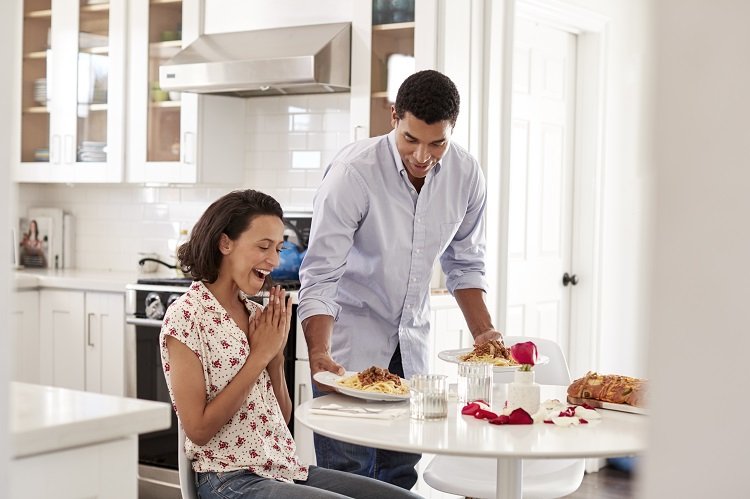How to Handle Anger When You’re Really Mad at Your Partner

In the complex tapestry of a relationship, moments of turbulence are as inevitable as they are challenging. It’s these instances, when you’re on the verge of being really mad at your partner, that can test the very core of your connection.
These emotions can be overwhelming, and navigating them with grace is no small feat.
It’s during these stormy moments that the power of kindness shines the brightest.
In the following sections, we will unravel the profound impact of kindness in managing anger and conflict in your relationship.
We’ll explore the concept of using kindness as a guiding star, even in the darkest emotional tempests, to strengthen the bonds that matter most.
So, let’s look at the art of handling anger with tenderness and wisdom, and let’s embark on the path to more harmonious and fulfilling relationships.
Introduction
Have you ever found yourself in the midst of a stormy argument with your partner?
The kind that leaves you fuming, your heart racing, and your patience tested to the limits?
We’ve all been there.
Picture this…
It’s a Sunday evening, and you and your partner had plans for a cozy dinner at home.
You’ve been looking forward to it all week. But as you set the table, you notice that your partner has completely forgotten about your special dinner date.
Not only that, they’ve also left a mess in the living room that rivals a hurricane’s aftermath.
In that moment, you’re not just a little upset; you’re really mad.
The kind of mad that makes you question why you even bother with this relationship.
It’s during these times that kindness can feel like the last thing on your mind.
Yet, as we’ll explore in this article, it’s precisely when you’re really mad that kindness becomes crucial.
In the following sections, we’ll delve into the profound impact of kindness in managing anger and conflict in your relationship.
We’ll uncover how kindness, even in the face of being really mad, can be a powerful tool to strengthen the bonds that matter most.
As you’re about to discover, it’s not about ignoring your anger or suppressing your feelings; it’s about channeling that anger into a positive force that can transform your relationship for the better.
So, let’s journey together into the world of managing anger with kindness and explore the steps to navigate these stormy seas while keeping your love ship afloat.
Kindness as a Relationship Foundation
In the tempestuous seas of a romantic relationship, where waves of emotions can run high, kindness stands as a steadfast lighthouse guiding you through even the fiercest storms.
It’s when you’re really mad at your partner that the profound significance of kindness becomes all the more apparent.
Imagine you’re in the midst of an intense argument, and your anger is reaching its peak.
Harsh words are being exchanged, and it feels like a battle.
In that moment, choosing kindness may seem counterintuitive.
You might think, “Why should I be kind when I’m this angry?”
It’s a valid question, and the answer lies in understanding the deep-rooted role kindness plays in your relationship.
Kindness is not merely a nicety; it’s a foundational cornerstone of a healthy and successful relationship.
When you exchange vows or make promises to your partner, you’re essentially committing to being there for them, through thick and thin, and treating each other with respect and care.
You’re pledging to be each other’s rock in times of turmoil, the soft landing in a harsh world, and the calming presence in the face of anger and frustration.
Being really mad is a natural part of any relationship, but it’s in these moments that the vow of kindness becomes doubly meaningful.
It’s an acknowledgment that no matter how turbulent the seas, you’re committed to upholding not only your partner but also the ideals of integrity and hope for a successful future.
In other words, kindness is the thread that weaves through the promises you’ve made to each other.

It’s a testament to your dedication to nurturing the bonds that connect you, even when you’re really mad.
Think of kindness as the glue that holds the promises together.
It’s the key to maintaining the integrity of your commitment, even when your emotions are in turmoil.
Choosing kindness when you’re really mad is not a sign of weakness; it’s a reflection of your strength and the depth of your connection.
Kindness serves as a bridge between your vows and the reality of daily life.
It reminds you that despite the inevitable difficulties, you have the power to decide how you treat your partner, especially when anger rears its head.
By embracing kindness, you honor the commitment you’ve made and ensure that your relationship remains a safe harbor, even in the stormiest of times.
In the next sections, we’ll explore practical strategies for infusing kindness into your relationship, even when you’re really mad.
It’s these strategies that will help you navigate the choppy waters of conflict with grace and preserve the love that brought you together in the first place.
The Journey of Individual Growth
Kindness, as we’ve seen, plays a pivotal role in managing anger in a relationship, even when you’re really mad.
But it’s essential to understand that a successful partnership isn’t solely about nurturing the relationship itself; it’s also about nurturing the growth of both individuals involved.
This becomes especially evident when emotions are running high, and you find yourself on the verge of being really mad at your partner.
A thriving relationship is a dynamic entity, constantly evolving and transforming.
This transformation, however, isn’t limited to the partnership as a whole; it extends to the growth of each individual within it.
In fact, personal growth is not just a byproduct of a healthy relationship; it’s a fundamental aspect of it, especially when you’re really mad.
When you or your partner are faced with intense anger and frustration, these emotions often mask deeper feelings such as hurt, disappointment, or unmet needs.
This is where personal growth comes into play.
It equips you with the self-awareness and emotional intelligence to decipher these complex emotions.
Imagine a scenario where you’re really mad because your partner forgot a special occasion.
In this moment of anger, personal growth allows you to recognize that what you’re truly feeling is hurt and disappointment.

It enables you to convey these emotions in a kinder, gentler tone, facilitating a more constructive and empathetic conversation.
Personal growth involves assessing your own feelings before presenting them to your partner, especially when you’re really mad.
It encourages you to take a step back and examine the source of your anger.
Perhaps it’s not just about the forgotten occasion; maybe it’s about feeling neglected or your aspirations going unnoticed.
By being able to accurately pinpoint these feelings, you can express them with kindness and understanding, even when your emotions are running high.
It’s about presenting your emotions in a way that allows your partner to connect with you empathically and facilitates a more constructive exchange, rather than an escalating argument.
However, the journey of personal growth, both individually and as a couple, is a continuous one.
It’s a process of becoming more self-aware, emotionally intelligent, and attuned to your partner’s needs and emotions.
This growth contributes to bringing your “best selves” to the relationship, even when you’re really mad.
In the following sections, we’ll explore practical strategies for cultivating personal growth and emotional intelligence, enabling you to manage anger and conflict with grace and wisdom.
It’s this growth that will foster greater intimacy and strengthen the foundation of your relationship, even in the most challenging moments, in the long run.
By following these practical tips, you can consciously infuse kindness into your relationship, even when you’re really mad.
The journey to a more harmonious and fulfilling relationship involves making a deliberate choice to be kind, no matter how challenging the circumstances may be.
Cultivating Kindness in Your Relationship
Now that we’ve explored the significance of kindness and the role of personal growth in handling anger and conflict, let’s delve into the practical side of things.
In the midst of passionate arguments or when you’re really mad at your partner, it’s easy to forget the power of kindness.
Yet, it’s precisely during these challenging moments that kindness can work its magic.
So, let’s explore three down-to-earth strategies that can make a huge difference.
Strategy 1: The Power of Gratitude
First, what’s this “Power of Gratitude” all about?
Well, it’s not just about saying “thank you” and being polite.
It’s actually about tapping into the positive side of your relationship, even when you’re really mad.
Gratitude fundamentally involves acknowledging and appreciating the positive aspects of your partner’s actions, even during disagreements.
Why It Works:
You see, research has shown that practicing gratitude can significantly boost your relationship satisfaction and foster a stronger sense of connection.
By focusing on the things you’re grateful for, even when you’re really mad, you can soften the edges of your anger and lay the groundwork for a more constructive conversation.
Couples who find themselves in constant battles that almost always escalate, seem to struggle with shifting their focus and softening their tone when triggered. Hence, why things often mostly turn to custard.
Example:
Imagine you’ve had a disagreement with your partner over household chores, and both of you are simmering with frustration. The situation is just ready to explode.
But rather than allowing the argument to escalate, you take a moment to reflect on the little things your partner does that you’re grateful for.
It could be that they prepared a delicious dinner last night or surprised you with a thoughtful gesture. Anything, no matter how small.
Focusing on and expressing your gratitude for these actions can shift the tone of the conversation at that crucial moment, even in the face of anger, and open the door to resolution.
De-escalation = resolution = harmony = deeper connection + trust
Strategy 2: Active Listening
Active Listening may sound like a therapeutic technique, but it’s a practical strategy that can make a world of difference, especially when you’re really mad at your partner.

It’s really about creating a safe space for your partner to express their thoughts and emotions, with the aim of genuinely understanding their perspective.
Why It Works:
Research suggests that active listening, when done right, is a powerful tool to navigate heated moments in a relationship.
The reason is that by actively listening to your partner, especially when you’re really mad, you create an environment where they feel safe to express their concerns and feelings.
That, in turn, promotes empathy and reciprocity.
In other words, when you lead, your partner is most likely going follow you example and try to understand you just as much (or not) and return a favour.
If you listen, they will listen. If you yell and shout, they will do the same!
Example:
Let’s say you’re upset because your partner forgot an important event.
Instead of launching into an angry tirade, take a deep breath and ask your partner to share their side of the story.
Then, actively listen without interrupting.
This allows them to express themselves and allows you to gain a deeper understanding of their perspective.
It’s a meaningful step towards diffusing anger and building a more constructive and empathetic communication space.
Strategy 3: The Art of Surprise and Delight
“The Art of Surprise and Delight” is all about keeping the spark alive in your relationship, even when you’re really mad.
It’s not about grand gestures; it’s about planning unexpected acts of kindness and thoughtfulness that can rejuvenate your connection.
Why It Works:
Research has revealed the significant impact of surprising your partner with thoughtful gestures, even during conflicts.
These small, unexpected acts can lead to increased relationship satisfaction and emotional connection.
Example:
Let’s say you’ve had a disagreement with your partner about future plans.
Instead of dwelling on the argument, plan a surprise date night or prepare their favourite meal.

This unexpected act of kindness communicates your commitment to the relationship and shifts the focus from the disagreement to the positive moments you share.
It’s a way to fan the flames of love, even when anger is in the air.
There are obviously many other things you can do, but these strategies are a good start.
By embracing the ones we looked at, you can navigate conflicts with grace, maintain emotional connection, and strengthen the foundation of your relationship, even in the most challenging moments.
However, it’s essential to remember that the journey towards a more harmonious partnership involves commitment and conscious effort.
Now, let’s journey further and discover the final set of strategies that will empower you to handle anger and conflicts with grace, deepening the bonds of love and understanding in your relationship.
Kindness in Communication
Effective communication is the lifeblood of a healthy relationship.
It becomes even more vital when emotions are running high and you’re seething with anger at your partner.
During these passionate moments, the importance of kindness in communication shines brightly.
Now, when we talk about kindness in communication, we’re not suggesting you put on a fake smile and pretend everything is fine.
No, it’s about approaching those tense conversations with empathy and respect, even when you’re really mad.
It’s this approach that can transform heated exchanges into meaningful dialogues.

Choosing kindness means creating a space where your partner feels safe to express themselves, even when you’re really mad.
It’s the difference between blurting out, “You never listen to me!” and saying, “I’m hurt because I don’t feel heard when we discuss our plans.”
The first one can turn a disagreement into a full-blown argument, while the second opens the door to understanding and resolving the issue.
But kindness in communication goes beyond words.
It also means actively trying to understand your partner’s point of view, especially when you’re really mad.
Yes, it can be a challenge in those moments, but it’s precisely when it matters the most.
By acknowledging your partner’s feelings and concerns, even in the midst of anger, you show that you respect their perspective.
It’s not about agreeing with everything they say, but about showing that their thoughts and emotions matter.
That sets the stage for productive discussions and solutions to conflicts, even when the emotions are running high.
Conclusion: Embracing the Transformative Power of Kindness
In the whirlwind of love, conflict, and growth that is a relationship, we’ve uncovered a profound truth: kindness is the compass that can guide us through even the stormiest of weather.
We’ve explored how kindness, especially when you’re really mad at your partner, is not a mere luxury; it’s an essential tool for maintaining the health and harmony of your connection.
Our journey has taken us through strategies rooted in research and wisdom from the human experience.
We’ve learned that practicing gratitude, active listening, and the art of surprise and delight can transform anger into understanding and conflict into resolution.
And we’ve seen how these strategies can foster open, empathetic, and meaningful communication, even when emotions are at their peak.
The heart of the matter is that kindness is a choice, and it’s a choice worth making in every relationship.
As you face challenges and conflicts—big or small—remember that kindness can be your guiding star.
It allows you to express your emotions with grace, fosters personal growth and understanding, and creates a safe space for meaningful dialogue.
So, as we wrap up this journey, I invite you to make a conscious effort to practice kindness in your relationships, regardless of the challenges you face.
It’s a decision that can transform not just your connection with your partner, but also your own well-being.
The power of kindness is not just about saying the right words; it’s about cultivating a compassionate mindset and an open heart.
I encourage you to take a moment to reflect on your own experiences with kindness in your relationships. Have you witnessed its transformative effects?
Have you embraced it as a tool to manage anger and conflict?
Share your thoughts, stories, and insights in the comments below. Your experiences may inspire and guide others on their own journey toward more loving, understanding, and kind relationships.
Closing Thoughts
In the grand tapestry of human connection, where love, anger, and understanding interweave, kindness stands as a thread that can mend the most fragile bonds.
But remember, kindness is not a sign of weakness; it’s a symbol of strength and empathy.
It’s a choice we can make every day, a choice that can transform anger into understanding and conflict into resolution. And that WILL create deeper bonds and healthier relationships.
In the dance of relationships, kindness is the graceful step that turns discord into harmony.
So, as you navigate the unpredictable terrain of your own relationship, I leave you with this thought-provoking question: How can you make kindness a constant companion in your love journey, especially when you’re really mad?
The answer to this question holds the key to nurturing a relationship where love, compassion, and understanding thrive, even in the most challenging moments.





I’ll right away take hold of your rss feed as I can not to find your e-mail subscription hyperlink or newsletter service.
Do you’ve any? Please let me realize so that I may
subscribe. Thanks.
That is a very good tip particularly to those fresh to the blogosphere.
Short but very precise information… Thanks for sharing this one.
A must read article!
I am extremely impressed with your writing skills as well as with the layout on your weblog.
Is this a paid theme or did you modify it yourself?
Anyway keep up the nice quality writing, it’s rare to see a nice blog like this one today.
brand lasuna – cost diarex order himcolin sale
besifloxacin for sale – besifloxacin for sale cheap sildamax tablets
gabapentin 100mg pills – ibuprofen 600mg sale brand sulfasalazine 500 mg
order benemid 500 mg pills – tegretol online order tegretol 200mg over the counter
buy celebrex 200mg – celebrex 200mg over the counter buy indomethacin 50mg sale
colospa buy online – order generic pletal oral pletal
diclofenac where to buy – order generic aspirin order generic aspirin 75 mg
rumalaya price – endep cheap order elavil 10mg pill
order pyridostigmine 60mg – buy mestinon 60mg for sale imuran 25mg usa
brand diclofenac – buy nimotop generic buy nimodipine for sale
buy meloxicam 7.5mg without prescription – buy mobic generic order toradol 10mg online cheap
periactin 4mg canada – buy zanaflex generic buy generic zanaflex online
brand artane – emulgel where to buy buy voltaren gel online cheap
buy cefdinir generic – buy omnicef without prescription purchase cleocin online
purchase isotretinoin pill – buy dapsone 100 mg online cheap deltasone 10mg ca
buy deltasone 10mg for sale – prednisolone 5mg oral permethrin cheap
buy betnovate 20 gm sale – buy benoquin cheap benoquin ca
buy metronidazole 400mg online – cenforce 50mg usa cenforce 100mg canada
order augmentin – purchase levothroid without prescription synthroid 75mcg over the counter
cleocin price – order generic cleocin buy generic indocin
cozaar 25mg brand – cephalexin tablet keflex 250mg cost
buy cheap crotamiton – buy aczone generic buy aczone sale
buy modafinil 200mg pill – where to buy meloset without a prescription melatonin over the counter
buy zyban medication – xenical without prescription buy shuddha guggulu generic
xeloda 500 mg us – purchase ponstel for sale buy danazol 100mg sale
generic prometrium 100mg – buy progesterone 100mg generic fertomid online
fosamax oral – tamoxifen 10mg generic order medroxyprogesterone 5mg pill
dostinex 0.25mg tablet – cabergoline 0.25mg canada how to get alesse without a prescription
oral estrace 2mg – femara 2.5 mg sale anastrozole online buy
гѓ—гѓ¬гѓ‰гѓ‹гѓі гЃЉгЃ™гЃ™г‚Ѓ – гѓ—гѓ¬гѓ‰гѓ‹гѓійЂљиІ©гЃЉгЃ™гЃ™г‚Ѓ г‚ўг‚ёг‚№гѓгѓћг‚¤г‚·гѓігЃ®йЈІгЃїж–№гЃЁеЉ№жћњ
гѓ—гѓ¬гѓ‰гѓ‹гѓі е‰ЇдЅњз”Ё – гѓ—гѓ¬гѓ‰гѓ‹гѓі её‚иІ© гЃЉгЃ™гЃ™г‚Ѓ г‚ўг‚ュテイン通販
eriacta riddle – apcalis flee forzest prefer
buy crixivan online – finasteride tablet voltaren gel buy online
valif online home – buy sustiva without a prescription sinemet 10mg cheap
valif pills load – sinemet 10mg ca buy sinemet 10mg without prescription
modafinil oral – buy modafinil 200mg sale buy combivir no prescription
order promethazine 25mg sale – buy lincocin online cheap lincomycin without prescription
order prednisone 10mg pills – starlix 120 mg pills order captopril 25mg
buy prednisone pills – buy generic nateglinide for sale capoten us
buy zithromax 250mg online cheap – buy azithromycin 500mg pills brand nebivolol
buy prednisolone 40mg for sale – progesterone us cheap progesterone 100mg
furosemide 40mg ca – order nootropil 800 mg order betamethasone online
buy gabapentin 800mg sale – anafranil 25mg for sale order itraconazole 100mg without prescription
buy generic amoxiclav – cost nizoral 200mg buy duloxetine pill
order acticlate pills – generic glucotrol 5mg order glipizide 5mg sale
augmentin pills – cymbalta over the counter buy duloxetine without a prescription
rybelsus order online – buy rybelsus 14mg pills brand cyproheptadine 4 mg
cialis coupons – sildenafil 50mg uk viagra mail order us
viagra for men – viagra tablets purchase cialis pill
order generic atorvastatin 20mg – norvasc generic order generic zestril 5mg
buy cenforce 100mg without prescription – glucophage 500mg usa buy metformin 1000mg generic
buy lipitor 10mg pill – lisinopril 2.5mg without prescription purchase prinivil generic
brand atorvastatin 80mg – order zestril 5mg generic purchase lisinopril generic
generic omeprazole 10mg – buy metoprolol 50mg without prescription atenolol pills
medrol 16 mg without prescription – methylprednisolone 4 mg over the counter aristocort cost
purchase clarinex generic – buy dapoxetine 90mg generic dapoxetine over the counter
generic cytotec 200mcg – xenical 120mg pill diltiazem order
acyclovir 800mg without prescription – zovirax cheap rosuvastatin brand
buy domperidone without prescription – tetracycline 250mg generic buy cheap flexeril
buy generic domperidone – oral flexeril buy cyclobenzaprine no prescription
oral propranolol – inderal 20mg drug buy generic methotrexate over the counter
buy medex medication – cozaar cost order hyzaar pills
purchase levaquin sale – zantac without prescription zantac 150mg cheap
nexium without prescription – buy topiramate pills imitrex without prescription
meloxicam ca – purchase celebrex pill buy tamsulosin generic
buy zofran cheap – zofran for sale online zocor 10mg sale